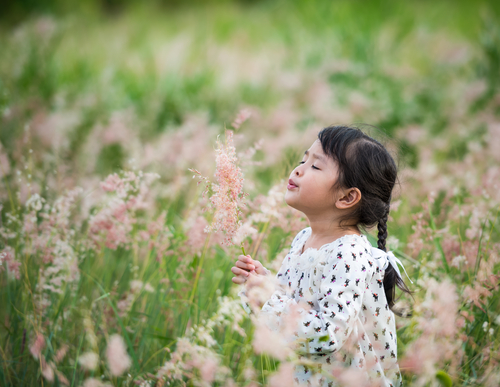Nobody wanted to admit that anything was wrong,
despite the overwhelming evidence
Carson presented.
I was stunned to find out that the government was doing such a poor job
of protecting us, and I was appalled at the way Carson was subsequently
demonized and characterized as unqualified, a scaremonger who wanted to erase
all the progress made by American farmers since the end of the
war. In fact, she was a highly esteemed biologist who had taught at
Johns Hopkins and the University of Maryland and then became
editor in chief of publications at the U.S. Department of Fish and
Wildlife. Before Silent Spring, she had written two acclaimed best
sellers about the biology of the sea.
She had criticized the regulatory agencies of the government
for carrying water for corporations like Monsanto, the manufacturer
of DDT, failing to warn the American public of the potential
dangers and the unknown long-term effects that these chemicals
would have on the earth and ultimately on us, our genes, and—as a
result—our children. There was, she pointed out, no mechanism of
accountability, no sense of responsibility, and seemingly no concern
about the American public remaining out of the loop. She quoted
French biologist and philosopher Jean Rostand…
“The obligation to endure gives us
the right to know.”
And she thought that we should do better than just endure.
As I was awakening to the horrors of the slow poisoning of
our planet, Ted’s parents were patiently ensuring that his education
included an abiding respect for the earth. His mother fed the
family from her extensive organic garden. She took turns with the
neighbors working in co-ops, helping to unpack crates and wait on
customers for a share of butter, eggs, and milk from local farms.
Shared acts of community like this in the 1960s were nuances in the
cracking open of the modern consciousness, the first whispers to us
that the closer we stayed to our food sources, the better.
Eventually his mother’s passion for good, safe, fresh food would
inspire Ted’s family to start a company that specialized in fresh fruit
juices. Their line, called Fresh Samantha (named for Ted’s niece),
was a favorite on the U.S. East Coast in the 1990s. “Having parents
who showed me how the earth works and how to work in the
earth formed me. And it ignited my imagination. When I think of
children today, I wonder how they learn to be at home outside in
nature instead of inside the spaces that wall them off from those
experiences.”
In fact, the amount of time children spend outside the house
in nature has steadily declined in the last thirty years. During that
same time period, the number of hours children spend on a variety
of high- tech devices has steadily risen in lockstep with the incidence
of childhood obesity.
Enter the giveaway…
[dynamic-sidebar id=’Custom Widget 1′]

Green Diva Meg
July 30, 2014 at 12:18 pm
this book has such warmth, depth and hope. even in the midst of our environmental trauma, there is so much goodness. such a wonderful reminder to stay connected to nature!
Pingback: Earth Calling - Excerpt & Giveaway | Earth Calling
Anne
July 31, 2014 at 7:13 am
I’ve known Ted since he was a teen-ager. Thrilled to be able to read this excerpt of his book. He is an exceptional person!
Pingback: Earth Calling: The "Silent Spring" for the 21st Century - myEARTH360 (the blog)